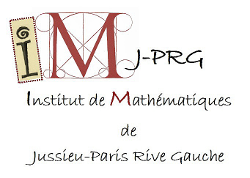| Résume | In Archimedes' works that involve statics, there are treatises that use the notion of the balance and those that don't, e.g., The Equilibrium of Planes. Consequently, the balancing point of a balance does not appear there nor even the principle of the lever or of the balance. One can conceive the relation of this treatise to other treatises involving the balance in terms of one science being prior to another or better in terms of levels of abstraction. The subject, as the title suggests, is equal inclination downwards (equilibrium), but this is conceived abstractly, and without involving any balance, where there remains only the more general center of weight of planes. This is important for understanding the diagrams and the representation of non-equilibrium. But this abstraction also has implications for the logical structure of the treatise. In Greek geometry, one is permitted to take points as one pleases, but not with any positional property one pleases. What are the constraints? Nevertheless, we find everywhere in the treatise an unstated assumption that for any collection of non-overlapping planes there is a unique center of weight, which one can take, where the work of the mathematician is now to find where it is located (always stated as a theorem. In effect, this is a hypothesis (in Aristotle's sense!) of unique existence. |

